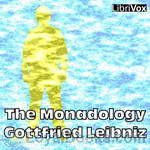|
Books Should Be Free Loyal Books Free Public Domain Audiobooks & eBook Downloads |
|
|
Books Should Be Free Loyal Books Free Public Domain Audiobooks & eBook Downloads |
|
Top Authors |
|---|
|
Book type:
Sort by:
|
By: Kate Douglas Smith Wiggin (1856-1923) | |
|---|---|
 Story of Waitstill Baxter
Story of Waitstill Baxter
| |
 A Village Stradivarius
A Village Stradivarius
| |
By: William Fairham | |
|---|---|
 Woodwork Joints How they are Set Out, How Made and Where Used.
Woodwork Joints How they are Set Out, How Made and Where Used.
| |
By: Cory Doctorow (1971-) | |
|---|---|
 Ebooks: Neither E, Nor Books
Ebooks: Neither E, Nor Books
| |
By: Thomas Babington Macaulay Macaulay (1800-1859) | |
|---|---|
 Lays of Ancient Rome
Lays of Ancient Rome
| |
 The Miscellaneous Writings and Speeches of Lord Macaulay Complete Table of Contents of the Four Volumes
The Miscellaneous Writings and Speeches of Lord Macaulay Complete Table of Contents of the Four Volumes
| |
 Miscellaneous Writings and Speeches
Miscellaneous Writings and Speeches
| |
 Miscellaneous Writings and Speeches — Volume 3
Miscellaneous Writings and Speeches — Volume 3
| |
By: George Ade (1866-1944) | |
|---|---|
 Fables in Slang
Fables in Slang
While a columnist for The Chicago Record humorist George Ade penned numerous “fables” which were subsequently collected into books. Fables in Slang is the first of these collections. It contains 26 satirical stories that lampoon phrenologists, idealists, snobs, fanatics and other ignorant fools of the day, most of which still wander through our modern lives. Jean Shepherd considered Ade a predecessor who made writers like James Thurber, Mike Royko, and himself possible. Fables in Slang was first published in 1899 by Herbert S. Stone and Company. | |
 More Fables
More Fables
| |
 People You Know
People You Know
| |
 Ade's Fables
Ade's Fables
| |
 The Slim Princess
The Slim Princess
| |
 Knocking the Neighbors
Knocking the Neighbors
| |
By: Gottfried Wilhelm Leibniz (1646-1716) | |
|---|---|
 The Monadology
The Monadology
The Monadology (La Monadologie, 1714) is one of Gottfried Leibniz’s best known works representing his later philosophy. It is a short text which sketches in some 90 paragraphs a metaphysics of simple substances, or monads. What he proposed can be seen as a modification of occasionalism developed by latter-day Cartesians. Leibniz surmised that there are indefinitely many substances individually ‘programmed’ to act in a predetermined way, each program being coordinated with all the others. This is the pre-established harmony which solved the mind body problem at the cost of declaring any interaction between substances a mere appearance, something which Leibniz accepted... | |
 Theodicy Essays on the Goodness of God, the Freedom of Man and the Origin of Evil
Theodicy Essays on the Goodness of God, the Freedom of Man and the Origin of Evil
| |
By: Ivan S. Turgenev (1818-1883) | |
|---|---|
 Fathers and Children
Fathers and Children
| |
 A Sportsman's Sketches Works of Ivan Turgenev, Volume I
A Sportsman's Sketches Works of Ivan Turgenev, Volume I
| |
 The Jew and Other Stories
The Jew and Other Stories
| |
 Rudin
Rudin
Rudin is the first and perhaps least known novel by Ivan Turgenev, a famous Russian writer best known for his short stories and the novel Fathers and Sons. The story focuses on a romantic involvement between Rudin and Natalya, a serious, intelligent young woman. The topic of the “superfluous man” and his inability to act, which was a major theme of Turgenev's literary work, is explored. – Adapted from https://en.wikipedia.org/wiki/Rudin by Lee Smalley | |
 Virgin Soil
Virgin Soil
| |
 On the Eve
On the Eve
On the Eve appeared in 1860, two years before Fathers and Sons, Turgenev's most famous novel. It is set in the prior decade (by the end of the novel, the Crimean War (1853-56) has already broken out. It centers on the young Elena Nikolaevna Stakhov, daughter of Nikolai Arteyemvitch and Anna Vassilyevna Stahov. Misunderstood by both her parents (Nikolai Artemyevitch is at least as interested in his German mistress as in members of her family) she is on friendly terms with both the would-be professor Andrei Petrovitch Bersenyev and the rising young sculptor Pavel Yakovitch Shubin, both of whom might be -- or might not be -- in love with her... | |
 Knock, Knock, Knock and Other Stories
Knock, Knock, Knock and Other Stories
| |
 A Desperate Character and Other Stories
A Desperate Character and Other Stories
| |
 A Reckless Character And Other Stories
A Reckless Character And Other Stories
| |
 A Nobleman's Nest
A Nobleman's Nest
| |
 The Rendezvous 1907
The Rendezvous 1907
| |
 Liza "A nest of nobles"
Liza "A nest of nobles"
| |
By: Edmond Rostand (1868-1918) | |
|---|---|
 Cyrano de Bergerac
Cyrano de Bergerac
One of the most beloved French plays of all time, Cyrano de Bergerac is a clever and tragic tale of truth concealed and love denied. Its titular character is a proud, daring swordsman and genius poet who has one terrible flaw: an abnormally large nose. Too afraid of rejection to confess his love for the beautiful Roxane, Cyrano helps her brainless but handsome suitor Christian to woo her, providing him with love letters while resolutely keeping his own passion a secret. | |
By: Edmond Rostand (1868-1918) | |
|---|---|
 L'Aiglon
L'Aiglon
| |
 Chantecler Play in Four Acts
Chantecler Play in Four Acts
| |
 The Romancers A Comedy in Three Acts
The Romancers A Comedy in Three Acts
| |
By: Ruth Plumly Thompson (1891-1976) | |
|---|---|
 The Royal Book of Oz
The Royal Book of Oz
The Royal Book of Oz (1921) is the fifteenth in the series of Oz books, and the first to be written by Ruth Plumly Thompson after L. Frank Baum’s death. Although Baum was credited as the author, it was written entirely by Thompson. The Scarecrow is upset when Professor Wogglebug tells him that he has no family, so he goes to where Dorothy Gale found him to trace his “roots.” Then he vanishes from the face of Oz. Dorothy and the Cowardly Lion mount a search for their friend, but when that is successful, they will need to become a rescue party! | |
By: Marion St. John Webb | |
|---|---|
 The House with the Twisting Passage
The House with the Twisting Passage
When Jenny goes to stay with her Aunt Abby, a caretaker in a grand old manor-house, she discovers a wonderful twisting passage on the second floor with an array of colourful characters living in the rooms along it – each of them with a story to tell. | |
By: Saint Thomas Aquinas (1225-1274) | |
|---|---|
 Summa Theologica - 06 Pars Prima Secundae, On the Last End, On Human Acts
Summa Theologica - 06 Pars Prima Secundae, On the Last End, On Human Acts
The Summa Theologica (or the Summa Theologiae or simply the Summa, written between 1265–1274) is the most famous work of Thomas Aquinas, even though it was never finished. It was intended as a manual for beginners and a compilation of all of the main theological teachings of that time. It summarizes the reasoning for almost all points of Christian theology in the West, which, before the Protestant Reformation, subsisted solely in the Roman Catholic Church. The Summa's topics follow a cycle: the existence of God, God's creation, Man, Man's purpose, Christ, the Sacraments, and back to God... | |
 Summa Theologica - 12 Pars Secunda Secundae, Treatise on Gratuitous Graces and the States of Life
Summa Theologica - 12 Pars Secunda Secundae, Treatise on Gratuitous Graces and the States of Life
The Summa Theologica (or the Summa Theologiae or simply the Summa, written 1265–1274) is the most famous work of Thomas Aquinas (c. 1225–1274) although it was never finished. It was intended as a manual for beginners and a compilation of all of the main theological teachings of that time. It summarizes the reasoning for almost all points of Christian theology in the West, which, before the Protestant Reformation, subsisted solely in the Roman Catholic Church. The Summa's topics follow a cycle: the existence of God, God's creation, Man, Man's purpose, Christ, the Sacraments, and back to God... | |
By: Aquinas Thomas (1225?-1274) | |
|---|---|
 On Prayer and The Contemplative Life
On Prayer and The Contemplative Life
| |
By: Thomas Mayne Reid (1813-1883) | |
|---|---|
 The Headless Horseman - A Strange Tale of Texas
The Headless Horseman - A Strange Tale of Texas
The horse is perfect in all its parts—a splendid steed, saddled, bridled, and otherwise completely caparisoned. In it there appears nothing amiss—nothing to produce either wonder or alarm. But the man—the rider? Ah! About him there is something to cause both—something weird—something wanting! By heavens! it is the head! (Excerpt from the Prologue) The Headless Horseman is a novel by Mayne Reid written in 1865 or 1866 and is based on the author's adventures in the United States. The Headless Horseman or a Strange Tale of Texas was set in Texas and based on a South Texas folk tale... | |
By: Samuel Pepys (1633-1703) | |
|---|---|
 Diary of Samuel Pepys
Diary of Samuel Pepys
| |
By: Mayne Reid (1813-1883) | |
|---|---|
 Gwen Wynn - A Romance of the Wye
Gwen Wynn - A Romance of the Wye
Gwendoline Wynn, our heroine, is an orphan-heiress who lives on the river Wye. She will live with aunt until she comes of age and her money. Vivian Ryecroft, our hero and a captain in the Hussars, is on a leave of absence in Herefordshire, salmon fishing on the Wye. Gwen and Vivian have a chance, and brief, encounter on the Wye, and Vivian is enchanted. Will our hero and heroine find love? Will it last? | |
 The Castaways
The Castaways
| |
 The Quadroon Adventures in the Far West
The Quadroon Adventures in the Far West
| |
By: Thomas Mayne Reid (1818-1883) | |
|---|---|
 Scalp Hunters
Scalp Hunters
"Unroll the world’s map, and look upon the great northern continent of America. Away to the wild west, away toward the setting sun, away beyond many a far meridian, let your eyes wander. Rest them where golden rivers rise among peaks that carry the eternal snow. Rest them there. You are looking upon a land whose features are un-furrowed by human hands, still bearing the marks of the Almighty mould, as upon the morning of creation; a region whose every object wears the impress of God’s image... | |